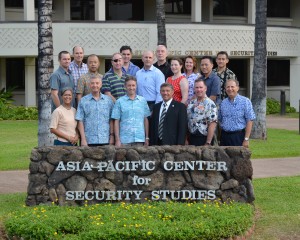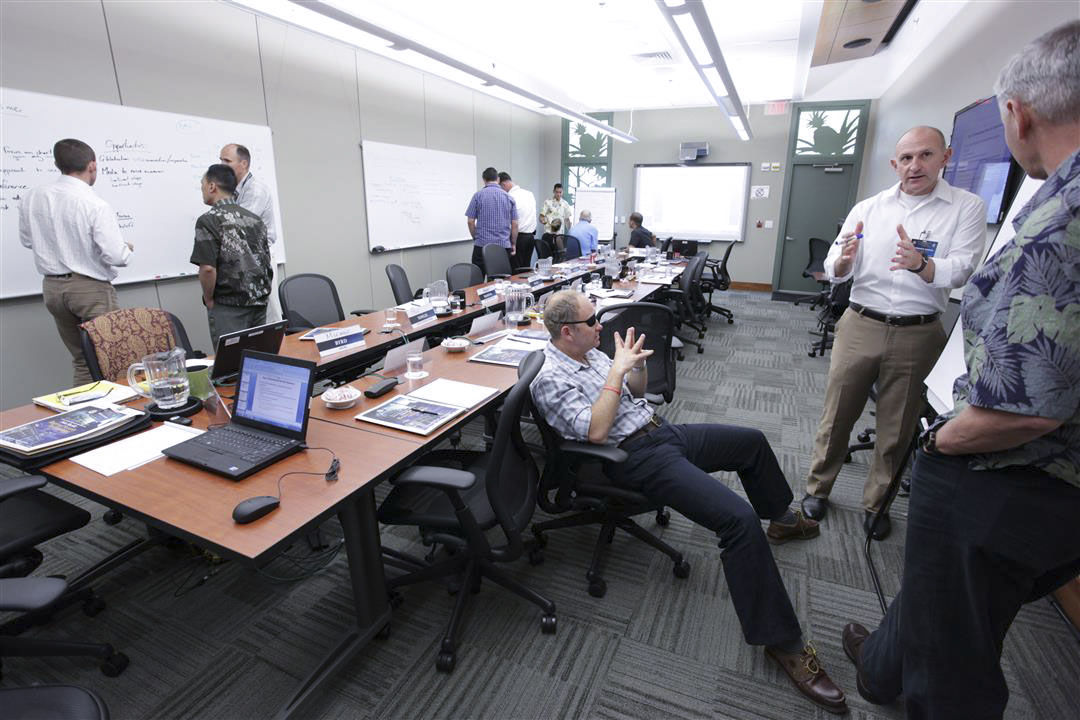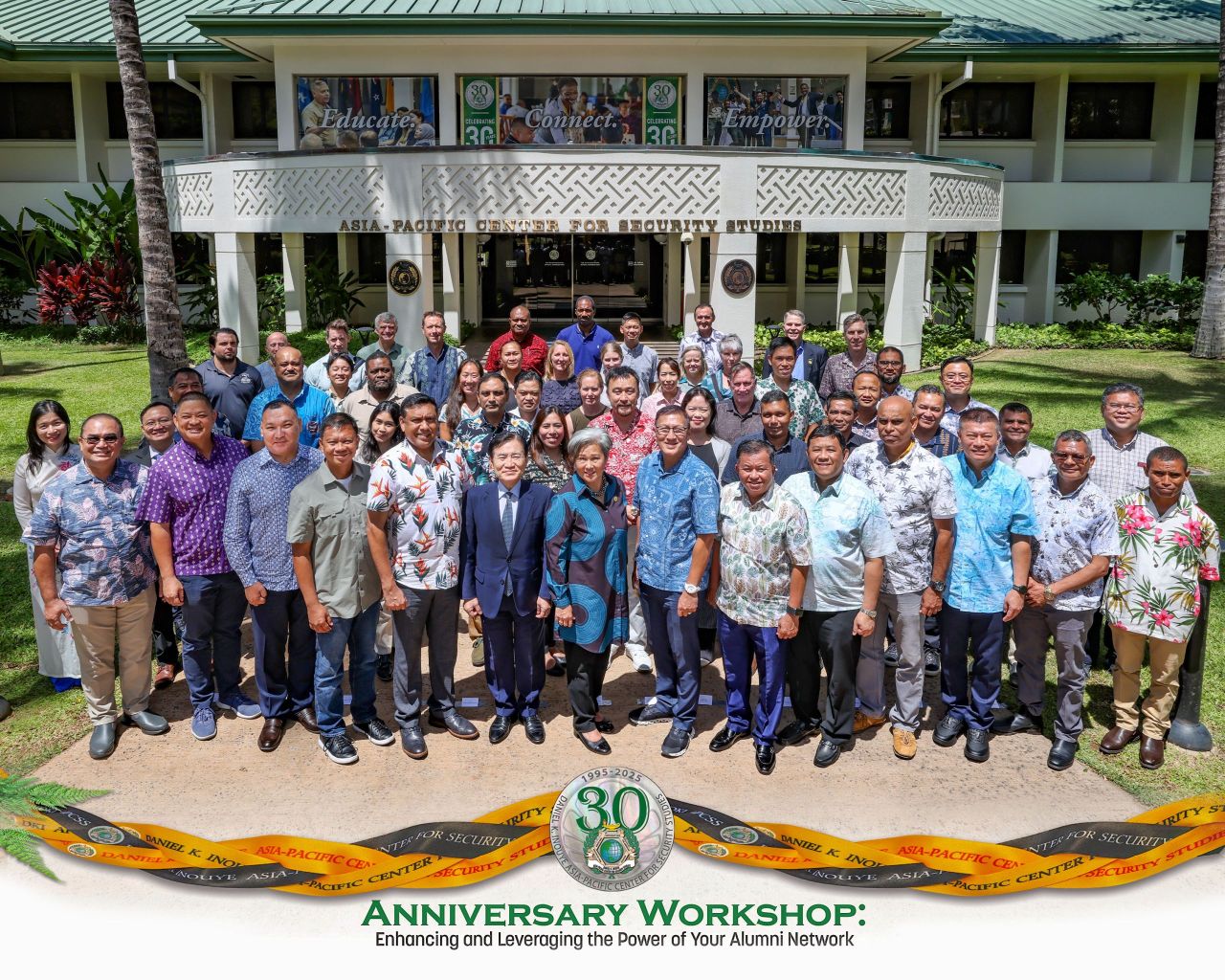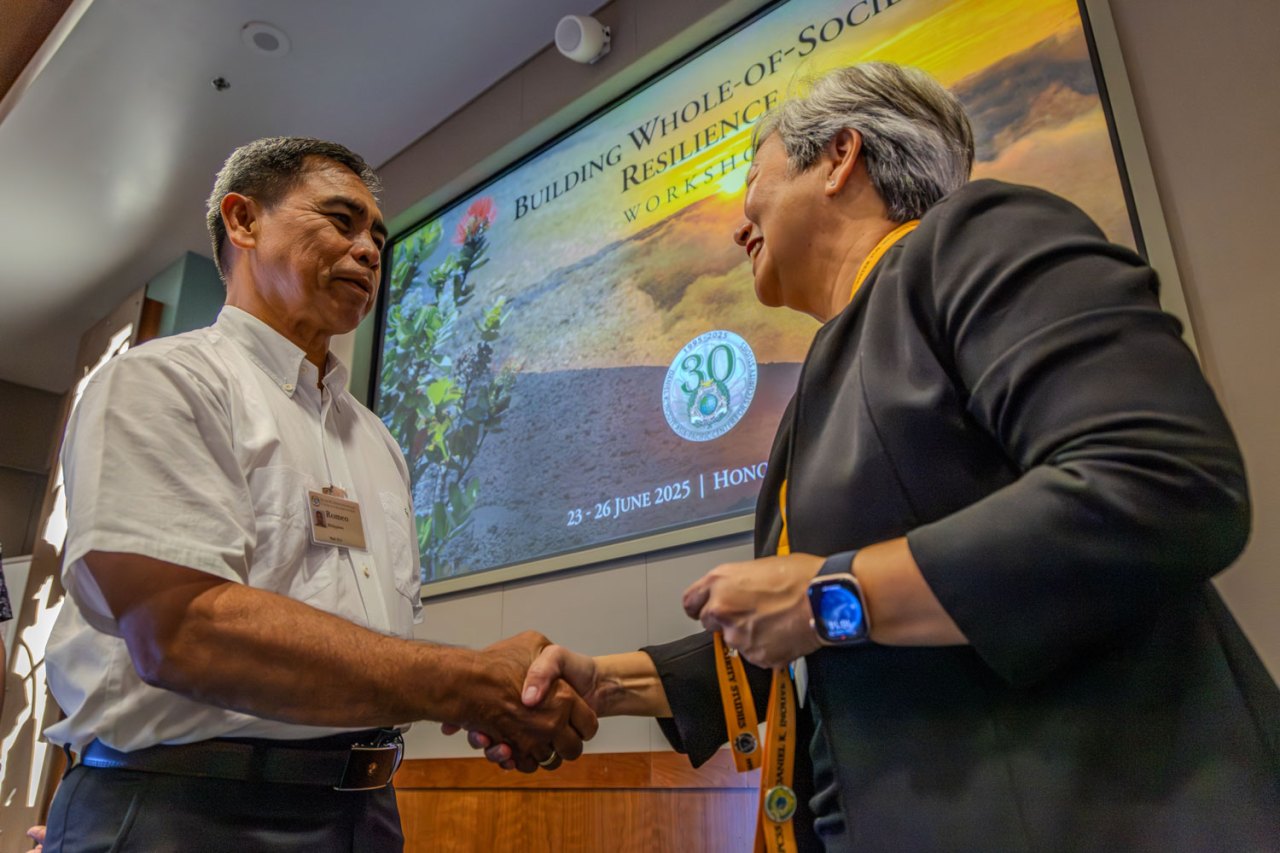 Nine Fellows from the Australian Command and Staff College spent the last week in Hawaii in a joint seminar at the Asia-Pacific Center for Security Studies.
Nine Fellows from the Australian Command and Staff College spent the last week in Hawaii in a joint seminar at the Asia-Pacific Center for Security Studies.
The “Understanding, Shaping and Adapting to the Asia-Pacific Regional Security Architecture” joint-seminar was held August 19-22 at APCSS. ACSC brought 9 faculty and staff members representing military and civilian elements from Australia, Canada, China, Indonesia, New Zealand, and the United Kingdom to this event.
Additionally, four U.S. participants from U.S. Pacific Command, U.S. Army Pacific and Special Operations Command Pacific as well as a legislative liaison attended this joint seminar. The APCSS-ACSC Joint Seminar focused on building stronger regional security architecture and partners’ capacity.
According to the seminar objectives, participants explored, promoted mutual understanding and applied the concept of regional security architecture to analyze the complex sub-regional security dynamics in the Asia-Pacific and addressed key transnational security issues in the Asia-Pacific Region. Participants also reviewed the concept of security sector development and specifically analyzed the role of the Australian security sector in adapting to and shaping the regional security architecture.
The ACSC consortium, led by Dr. Russell James Parkin, credited APCSS, specifically faculty members Dr. Miemie Byrd and Dr. Rouben Azizian, with the development and orchestration of this joint seminar for the third straight year, noting that the curriculum has been more comprehensive each year the event has been held.
As the academic lead for this joint-seminar, Dr. Byrd observed that of the many byproducts from this year’s event, the broader diversity and experience levels of the Fellow’s panel provided enhanced perspectives to the security dialogue. It enabled the group to focus more on the core strategic aspects and implications, rather than operational level causes and influences. “They started to think more broadly about security,” said Dr. Byrd, who observed that this panel of Fellows gravitated towards the greater role of education and importance of educational development within the security architecture.
-End-










Leave A Comment